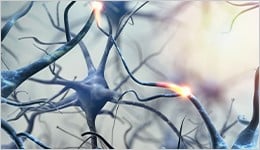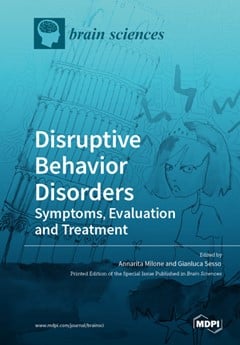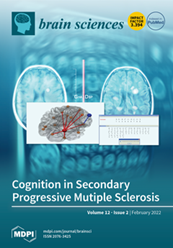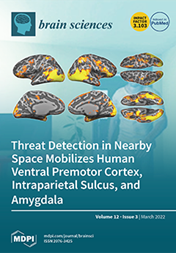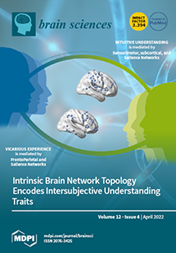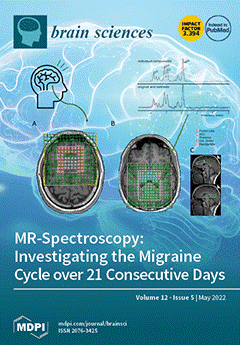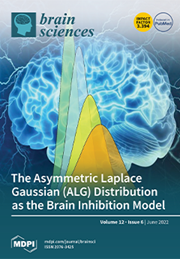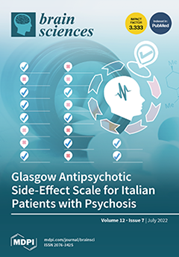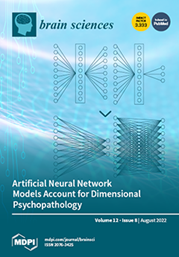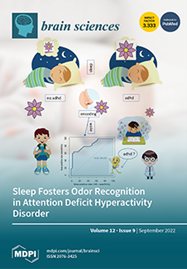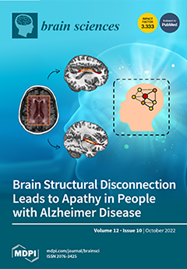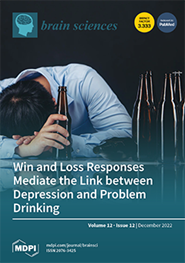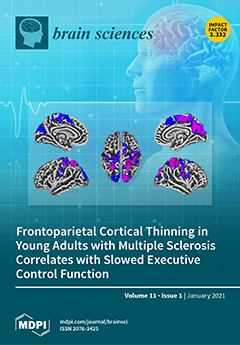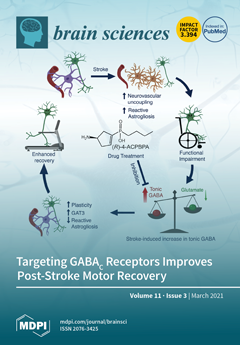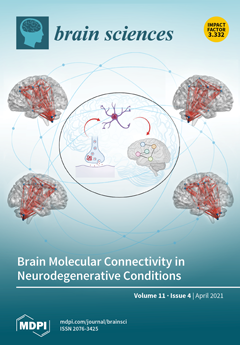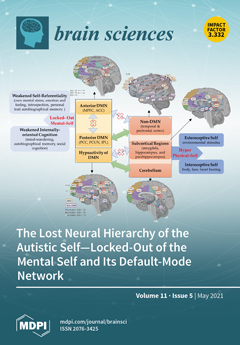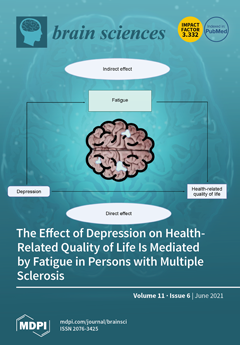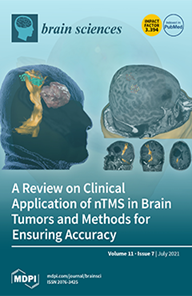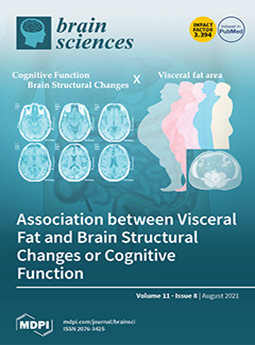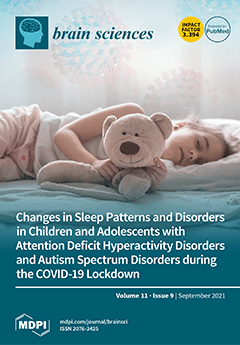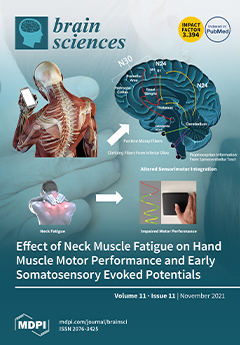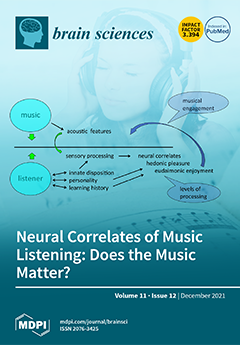
Journal Menu
► ▼ Journal Menu-
- Brain Sciences Home
- Aims & Scope
- Editorial Board
- Reviewer Board
- Topical Advisory Panel
- Instructions for Authors
- Special Issues
- Topics
- Sections & Collections
- Article Processing Charge
- Indexing & Archiving
- Editor’s Choice Articles
- Most Cited & Viewed
- Journal Statistics
- Journal History
- Journal Awards
- Society Collaborations
- Conferences
- Editorial Office
Journal Browser
► ▼ Journal BrowserNeed Help?
Announcements
7 April 2023
World Health Day–Health for All

On 7 April 2023—World Health Day, the World Health Organization (WHO) will observe its 75th anniversary. In 1948, countries of the world came together and founded the WHO to promote health, keep the world safe, and serve the vulnerable, so that everyone, everywhere, can attain the highest level of health and well-being. The WHO’s 75th anniversary is an opportunity to look back at public health successes that have improved quality of life over the last seven decades. It is also an opportunity to motivate action to tackle the health challenges of today and tomorrow. In order to encourage everyone to understand health and pay attention to health, we have also curated a list of publications on topics related to universal health coverage, healthy diet, and mental health. We also want to remind everyone that all research published in MDPI journals is available in an open access format, allowing practitioners, policy makers, and people around the world to access the latest scientific knowledge to build upon and share. Although we still have a long way to go to achieve universal health, this day also provides an opportunity to celebrate the progress made and inspire further action toward a more just and equitable world. Join us on a journey at MDPI to achieve Health for All.
|
Journal Recommendation |
|||

- The Antioxidant Potential of the Mediterranean Diet as a Predictor of Weight Loss after a Very Low-Calorie Ketogenic Diet (VLCKD) in Women with Overweight and Obesity
Antioxidants 2023, 12(1), 18; https://doi.org/10.3390/antiox12010018
- Effectiveness of Non-Contact Dietary Coaching in Adults with Diabetes or Prediabetes Using a Continuous Glucose Monitoring Device: A Randomized Controlled Trial
Healthcare 2023, 11(2), 252; https://doi.org/10.3390/healthcare11020252
- The Association between Advanced Liver Fibrosis and Mortality Is Modified by Dietary Quality among Korean Adults: Results from the Korea National Health and Nutrition Examination Survey with Mortality Data
Nutrients 2023, 15(6), 1501; https://doi.org/10.3390/nu15061501
- Physical Exercise and Diet: Regulation of Gut Microbiota to Prevent and Treat Metabolic Disorders to Maintain Health
Nutrients 2023, 15(6), 1539; https://doi.org/10.3390/nu15061539
|
Section: Nutrition and Public Health |
Special Issue: Dietary Antioxidants and Cardiovascular Health |

- Modelling and Prediction of the Spread of COVID-19 in Cameroon and Assessing the Governmental Measures (March–September 2020)
COVID 2021, 1(3), 622-644; https://doi.org/10.3390/covid1030052
- SARS-CoV-2 Infection in Health Care Workers of Trieste (North-Eastern Italy), 1 October 2020–7 February 2022: Occupational Risk and the Impact of the Omicron Variant
Viruses 2022, 14(8), 1663; https://doi.org/10.3390/v14081663
- Vaccination Coverage during Childhood and Adolescence among Undergraduate Health Science Students in Greece
Children 2022, 9(10), 1553; https://doi.org/10.3390/children9101553
- Determinants of Equity in Coverage of Measles-Containing Vaccines in Wales, UK, during the Elimination Era
Vaccines 2023, 11(3), 680; https://doi.org/10.3390/vaccines11030680
|
Section: School Health |
Topical Collection: Poxviruses |

- Sex Differences in Substance Use, Prevalence, Pharmacological Therapy, and Mental Health in Adolescents with Attention-Deficit/Hyperactivity Disorder (ADHD)
Brain Sci. 2022, 12(5), 590; https://doi.org/10.3390/brainsci12050590
- Impact on Students of the Act–Belong–Commit Mentally Healthy Schools Framework
Children 2023, 10(3), 548; https://doi.org/10.3390/children10030548
- Psychological Health and Drugs: Data-Driven Discovery of Causes, Treatments, Effects, and Abuses
Toxics 2023, 11(3), 287; https://doi.org/10.3390/toxics11030287
- Characterizing Touch Discrimination Impairment from Pooled Stroke Samples Using the Tactile Discrimination Test: Updated Criteria for Interpretation and Brief Test Version for Use in Clinical Practice Settings
Brain Sci. 2023, 13(4), 533; https://doi.org/10.3390/brainsci13040533
|
Special Issue: Disruptive Behavior Disorders: Symptoms, Evaluation and Treatment |
Special Issue: Organophosphate-Induced Neurotoxicity: Countermeasures, Mechanisms, and Physiology |

29 March 2023
Meet Us at the MDPI World Autism Awareness Day Webinar 2023, 2 April 2023

In order to commemorate World Autism Awareness Day 2023, MDPI is launching a special webinar to encourage researchers to join together, take action, and highlight how the exchange of findings facilitates efforts to raise awareness about autism.
Over the past decade, major progress has been made towards increasing access to education generally, as well as for persons with autism specifically.
The webinar aims to encourage connections and collaboration among autism researchers and the international Open Access community to help improve the lives of those with autism.
We are very much looking forward to seeing you at the MDPI World Autism Awareness Day Webinar 2023.
Conference Secretariat: Ms. Shun Li
Date and time: 2 April 2023, 11:00 p.m. CEST
Register now for free:
This is a free webinar. After registering, you will receive a confirmation email containing information on how to join the webinar. Registrations with academic institutional email addresses will be prioritized.
Unable to attend? Register anyway and we will let you know when the recording is available to watch.
Webinar Chairs and Keynote Speakers:
- Dr. James Brasic, Section of High Resolution Brain Positron Emission Tomography Imaging, Division of Nuclear Medicine and Molecular Imaging, The Russell H. Morgan Department of Radiology and Radiological Science, The Johns Hopkins University School of Medicine, Baltimore, MD, USA, Section Board Member of Brain Sciences (ISSN: 2076-3425), Guest Editor of IJMS (ISSN: 1422-0067)
- Dr. Kazuhito Toyooka, Department of Neurobiology and Anatomy, Drexel University College of Medicine, 2900 Queen Lane, Philadelphia, PA 19129, USA, Section Board Member of Brain Sciences (ISSN: 2076-3425), Guest Editor of IJMS (ISSN: 1422-0067)
- Dr. Richard E. Frye, Autism Discovery and Treatment Foundation, Phoenix AZ, Editorial Board Member of JPM (ISSN: 2075-4426)
Program:
| Speaker/Presentation | Time in CEST |
| Introduction | 11:00 p.m.–11:10 p.m. |
| Dr. James Brasic Developing a relaxation response to catastrophes |
11.10 p.m.–11:40 p.m. |
| Dr. Kazuhito Toyooka ADNP, the gene responsible for autism and ADNP syndrome, regulates neuromorphogenesis, neural connectivity and activity during cortical development. |
11:40 p.m.–12:10 a.m. |
| Dr. Richard E. Frye The role of mitochondria and folate in prenatal health and offspring neurodevelopment |
12:10 a.m.–12:40 a.m. |
| Q&A Session | 12:40 a.m.–01:00 a.m. |
Relevant Special Issues:
Behavioral Sciences
"Training and Education in Children with Autism"
Edited by: Alessandro Frolli, Angelo Rega and Maria Carla Ricci
Submission deadline: 30 June 2023
Biomolecules
"Glutamate and Glutamate Receptors in Health and Diseases"
Edited by: Jolanta H. Kotlińska and Marta Marszalek-Grabska
Submission deadline: 30 September 2023
Brain Sciences
"Sexuality in Autism Spectrum Disorders: Past, Present and Innovative Perspectives"
Edited by: Rocco Salvatore Calabrò and Giovanni Pioggia
Submission deadline: 25 July 2023
Cells
"Molecular Genetics of Neuropsychiatric Diseases"
Edited by: Yingwei Mao and Xin Tang
Submission deadline: 8 March 2024
CIMB
"Neuropathology: From Molecular Mechanisms to Therapeutic Solutions"
Edited by: Wenqiang Fan and Xingping Qin
Submission deadline: 31 July 2023
Disabilities
"Technology for People with Disabilities: Opportunities and Challenges"
Edited by: Angelo Rega and Alessandro Frolli
Submission deadline: 30 June 2023
Genes
"Genes, Phenotypes and Molecular Mechanisms for Personalized Medicine in Autism"
Edited by: M. E. Suzanne Lewis
Submission deadline: 20 June 2023
IJERPH
"Research on Autism in Children"
Edited by: Andrey Vyshedskiy
Submission deadline: 31 August 2023
JPM
"A Personalized Medicine Approach to the Diagnosis and Management of Autism Spectrum Disorder: Beyond Genetic Syndromes"
Edited by: Richard E. Frye, Richard G. Boles, Daniel Rossignol and Shannon Rose
Submission deadline: 10 June 2023
Life
"Steroid Hormones, Oxidative Stress, Mitochondrial Dysfunction Unsolving the Enigma of Autism?"
Edited by: Benedikt Andreas Gasser and Markus G. Mohaupt
Submission deadline:31 July 2023
Medicina
"Atypical Autism: Causes, Diagnosis, and Current Treatment"
Edited by: Rekha Jagadapillai
Submission deadline: 15 October 2023
Molecules
"Bioactive Lipids and Cannabinoids, Key Players in Neuropsychiatric Disorders and Beyond"
Edited by: Giuseppe Di Giovanni and Mauro Maccarrone
Submission deadline: 31 August 2023
NeuroSci
"Disorders of Cognition and Behavior"
Edited by: Satwant Kumar
Submission deadline: 30 April 2023
Nutrients
"Effects of Polyunsaturated Fatty Acids on Brain Metabolism and Neurodevelopment"
Edited by: Dhavamani Sugasini
Submission deadline: 20 July 2023
Pathophysiology
"Neurodegenerative Diseases: Advances in Understanding Mechanisms and Development of Therapies"
Edited by: Shao-bin Wang and Zhongshan Cheng
Submission deadline: 30 June 2023
Pharmaceuticals
"Drug Treatment For Autism"
Edited by: Maryam Ardalan
Submission deadline: 31 May 2023
Sci
"Feature Papers—Multidisciplinary Sciences 2023"
Edited by: Claus Jacob and Ahmad Yaman Abdin
Submission deadline: 31 December 2023
Technologies
"Machine Learning Methods for Bio-Medical Image and Signal Processing: Recent Advances"
Edited by: Lipo Wang
Submission deadline: 15 November 2023
Toxics
"Association of Environmental Exposures with Mental and Cognitive Health"
Edited by: Hicran Altug, Tamara Schikowski and Rachel Tham
Submission deadline: 5 April 2023
24 March 2023
Brain Sciences | Issue Cover Articles in 2022
The articles below have been selected as 2022 Issue Cover papers by the Editorial Office of Brain Sciences (ISSN: 2076-3425). These articles came from multiple fields within neuroscience, including hypnosis, Multiple Sclerosis, space perception, empathy, migraine, inhibition response, Schizophrenia, artificial neural network model, Attention Deficit Hyperactivity Disorder (ADHD), Alzheimer’s Disease, aneurysms, depression. We hope these papers can provide insights and references for scholars in these fields.
|
|
1. “Functional Changes in Brain Activity Using Hypnosis: A Systematic Review” by Thomas Gerhard Wolf, Karin Anna Faerber, Christian Rummel, Ulrike Halsband and Guglielmo Campus Brain Sci. 2022, 12(1), 108; https://doi.org/10.3390/brainsci12010108 Available online: https://www.mdpi.com/2076-3425/12/1/108 |
|
|
2. “Cognitive Impairment in Secondary Progressive Multiple Sclerosis: Effect of Disease Duration, Age, and Progressive Phenotype” |
|
|
3. “Threat Detection in Nearby Space Mobilizes Human Ventral Premotor Cortex, Intraparietal Sulcus, and Amygdala” |
|
|
4. “Intrinsic Shapes of Empathy: Functional Brain Network Topology Encodes Intersubjective Experience and Awareness Traits” |
|
|
5. “Investigating the Migraine Cycle over 21 Consecutive Days Using Proton Magnetic Resonance Spectroscopy and Resting-State fMRI: A Pilot Study” |
|
|
6. “The Asymmetric Laplace Gaussian (ALG) Distribution as the Descriptive Model for the Internal Proactive Inhibition in the Standard Stop Signal Task” |
|
|
7. “Validation of the Glasgow Antipsychotic Side-Effect Scale (GASS) in an Italian Sample of Patients with Stable Schizophrenia and Bipolar Spectrum Disorders” |
|
|
8. “Neurocognitive Artificial Neural Network Models Are Superior to Linear Models at Accounting for Dimensional Psychopathology” |
|
|
9. “Sleep Fosters Odor Recognition in Children with Attention Deficit Hyperactivity Disorder but Not in Typically Developing Children” |
|
|
10. “Macrostructural and Microstructural White Matter Alterations Are Associated with Apathy across the Clinical Alzheimer’s Disease Spectrum” |
|
|
11. “Flow Diverter Devices in the Treatment of Anterior Communicating Artery Region Aneurysms: Would the Regional Anatomy and the Aneurysm Location Affect the Outcomes?” |
|
|
12. “Win and Loss Responses in the Monetary Incentive Delay Task Mediate the Link between Depression and Problem Drinking” |
21 March 2023
Brain Sciences | Issue Cover Articles in 2021
The articles below have been selected as the 2021 Issue Cover papers by the Editorial Office of Brain Sciences (ISSN: 2076-3425). These articles came from multiple fields within the scope of neurosciences, including multiple sclerosis, neurodegenerative biomarkers, post-stroke motor recovery, autism, nTMS application, nutrition and cognition, COVID-19 effect, attention-deficit/hyperactivity disorder (ADHD), muscle motor performance, and music’s effect on the brain. We hope they can provide insights and references for scholars in these fields.
|
|
1. “Gray Matter Morphometry Correlates with Attentional Efficiency in Young-Adult Multiple Sclerosis” by Sindhuja T. Govindarajan, Ruiqi Pan, Lauren Krupp, Leigh Charvet and Tim Q. Duong Brain Sci. 2021, 11(1), 80; https://doi.org/10.3390/brainsci11010080 Available online: https://www.mdpi.com/2076-3425/11/1/80 |
|
|
2. “Exosomes as Emerging Biomarker Tools in Neurodegenerative and Neuropsychiatric Disorders—A Proteomics Perspective” |
|
|
3. “Targeting GABAC Receptors Improves Post-Stroke Motor Recovery” |
|
|
4. “Brain Molecular Connectivity in Neurodegenerative Conditions” |
|
|
5. “The Lost Neural Hierarchy of the Autistic Self—Locked-Out of the Mental Self and Its Default-Mode Network” |
|
|
6. “The Effect of Depression on Health-Related Quality of Life Is Mediated by Fatigue in Persons with Multiple Sclerosis” |
|
|
7. “Mapping of Motor Function with Neuronavigated Transcranial Magnetic Stimulation: A Review on Clinical Application in Brain Tumors and Methods for Ensuring Feasible Accuracy” |
|
|
8. “Association between Visceral Fat and Brain Structural Changes or Cognitive Function” |
|
|
9. “Changes in Sleep Patterns and Disorders in Children and Adolescents with Attention Deficit Hyperactivity Disorders and Autism Spectrum Disorders during the COVID-19 Lockdown” |
|
|
10. “Perinatal Acetaminophen Exposure and Childhood Attention-Deficit/Hyperactivity Disorder (ADHD): Exploring the Role of Umbilical Cord Plasma Metabolites in Oxidative Stress Pathways” |
|
|
11. “Effect of Neck Muscle Fatigue on Hand Muscle Motor Performance and Early Somatosensory Evoked Potentials” |
|
|
12. “Neural Correlates of Music Listening: Does the Music Matter?” |
13 March 2023
MDPI’s Newly Launched Journals in December 2022
As a leading open access publisher, MDPI provides scholars with a high-quality and rich academic exchange platform by continuously expanding into new and exciting research areas.
In December 2022, MDPI launched five new journals, covering multiple subjects such as life sciences, biology, medicine and pharmacology, social sciences and humanities. These new journals are being edited by established scholars across the world.
|
Journal |
Founding Editor-in-Chief |
Journal Topics (Selected) |
|
Prof. Dr. Fabio Gresta, University of Messina, Italy| Editorial | view inaugural issue |
grass/forage/turf production; grassland management; pasture monitoring; grazing and livestock; grass agro-ecosystems| view journal scope | submit an article |
|
|
Prof. Dr. Christos G. Athanassiou, University of Thessaly, Greece| Editorial | view inaugural issue |
pesticides; fungicides; herbicides; fertilizers; soil conditioners| view journal scope | submit an article |
|
|
Prof. Dr. Stephen H. Safe, Texas A&M University, USA| Editorial | view inaugural issue |
receptor structure; receptor function; receptor signaling; receptor expression and regulation; receptor interactions with drugs| view journal scope | submit an article |
|
|
Dr. Jean Jacques Vanden Eynde, University of Mons-UMONS, Belgium| Editorial | view inaugural issue |
drug discovery; medicinal chemistry; preclinical and clinical research; marketed drugs; intellectual property and regulatory affairs| view journal scope | submit an article |
|
|
Prof. Dr. Heather Kanuka, University of Alberta, Canada| Editorial | view inaugural issue |
higher education; tertiary education; policy and practice in higher education; educational leadership in higher education; educational administration and management in higher education| view journal scope | submit an article |
If you are interested in creating more open access journals with us to publish cutting-edge research, please send your journal proposal application to newjournal-committee@mdpi.com.
7 March 2023
Displaying Co-Authors’ Email Addresses on the Webpage of Published Papers
MDPI is pleased to announce that we now display the co-authors’ email addresses in addition to the corresponding author’s email address on the webpage of published papers, protected by Captcha. For more information about this change, please visit the journal’s instructions for authors page.
We believe this change will facilitate academic discussions and advance our cause of open science and research. The corresponding authors are responsible for communicating with their co-authors and indicating in our system (https://susy.mdpi.com/) if co-authors would prefer for their email addresses not to be displayed.
16 February 2023
Increasing Visibility for Preprints.org – Clarivate adds the Preprint Citation Index to the Web of Science

On 9 February 2023, Clarivate, a global leader in providing trusted insights and analytics, added the Preprint Citation Index to the Web of Science platform, streamlining the research process by allowing researchers to locate and link to preprints alongside other trusted content in the database.
The Preprint Citation Index will act as a bridge to connect cutting-edge preprints with peer-reviewed journal articles published within the Web of Science Core Collection. Alerts can be easily set to monitor new research across several repositories and authors will also be able to include preprints on their Web of Science Research Profile to more accurately display their various research outputs.
As of its launch, the Preprint Citation Index will provide nearly two million preprints from various repositories, including MDPI’s own Preprints.org.
MDPI's Preprints Platform – Preprints.org
To advance Open Science and the fast dissemination of research, MDPI offers researchers a free multidisciplinary preprint platform. Preprints.org accepts submissions from all research areas and offers authors high visibility, permanent archiving, article-level Metrics and immediately citable content by assigning a Digital Object Identifier (DOI) to all preprints.
During submission to any MDPI journal, authors have the option to share their research as a preprint. After an initial screening, the manuscript is available online in 48 hours or less. Once online, preprints can be downloaded, shared, commented on, and cited, providing authors maximum visibility.
We invite you to join the ranks of the over 100k researchers using Preprints.org and share your research.
For more information, please visit Preprints.org.
11 January 2023
Brain Sciences | Issue Cover Papers in 2020
- “Current Therapeutic Strategies for Glioblastoma”
by Julien Rossignol, Bhairavi Srinageshwar and Gary L. Dunbar
Brain Sci. 2020, 10(1), 15; https://doi.org/10.3390/brainsci10010015
Available online: https://www.mdpi.com/2076-3425/10/1/15 - “Lemur Tyrosine Kinase 2 (LMTK2) Level Inversely Correlates with Phospho-Tau in Neuropathological Stages of Alzheimer’s Disease”
by János Bencze, Máté Szarka, Viktor Bencs, Renáta Nóra Szabó, László V. Módis, Dag Aarsland and Tibor Hortobágyi
Brain Sci. 2020, 10(2), 68; https://doi.org/10.3390/brainsci10020068
Available online: https://www.mdpi.com/2076-3425/10/2/68 - “Electroencephalogram (EEG) Alpha Power as a Marker of Visuospatial Attention Orienting and Suppression in Normoxia and Hypoxia. An Exploratory Study”
by Alberto Zani, Clara Tumminelli and Alice Mado Proverbio
Brain Sci. 2020, 10(3), 140; https://doi.org/10.3390/brainsci10030140
Available online: https://www.mdpi.com/2076-3425/10/3/140 - “Transcriptomic Analysis Reveals Abnormal Expression of Prion Disease Gene Pathway in Brains from Patients with Autism Spectrum Disorders”
by Salvo Danilo Lombardo, Giuseppe Battaglia, Maria Cristina Petralia, Katia Mangano, Maria Sofia Basile, Valeria Bruno, Paolo Fagone, Rita Bella, Ferdinando Nicoletti and Eugenio Cavalli
Brain Sci. 2020, 10(4), 200; https://doi.org/10.3390/brainsci10040200
Available online: https://www.mdpi.com/2076-3425/10/4/200 - “Effect of the Type and Number of Adverse Childhood Experiences and the Timing of Adverse Experiences on Clinical Outcomes in Individuals with Bipolar Disorder”
by Young-Min Park, Tatyana Shekhtman and John R. Kelsoe
Brain Sci. 2020, 10(5), 254; https://doi.org/10.3390/brainsci10050254
Available online: https://www.mdpi.com/2076-3425/10/5/254 - “Recent Advances in Antigen-Specific Immunotherapies for the Treatment of Multiple Sclerosis”
by Olga Kammona and Costas Kiparissides
Brain Sci. 2020, 10(6), 333; https://doi.org/10.3390/brainsci10060333
Available online: https://www.mdpi.com/2076-3425/10/6/333 - “Neurodevelopmental Consequences of Pediatric Cancer and Its Treatment: The Role of Sleep”
by Maria Paola Mogavero, Oliviero Bruni, Lourdes M. DelRosso and Raffaele Ferri
Brain Sci. 2020, 10(7), 411; https://doi.org/10.3390/brainsci10070411
Available online: https://www.mdpi.com/2076-3425/10/7/411 - “Grammatical Comprehension in Italian Children with Autism Spectrum Disorder”
by Jessica Barsotti, Gloria Mangani, Roberta Nencioli, Lucia Pfanner, Raffaella Tancredi, Angela Cosenza, Gianluca Sesso, Antonio Narzisi, Filippo Muratori, Paola Cipriani et al.
Brain Sci. 2020, 10(8), 510; https://doi.org/10.3390/brainsci10080510
Available online: https://www.mdpi.com/2076-3425/10/8/510 - “Using Plasma Autoantibodies of Central Nervous System Proteins to Distinguish Veterans with Gulf War Illness from Healthy and Symptomatic Controls”
by Mohamed B. Abou-Donia, Elizabeth S. Lapadula, Maxine H. Krengel, Emily Quinn, Jessica LeClair,
Joseph Massaro, Lisa A. Conboy, Efi Kokkotou, Maria Abreu, Nancy G. Klimas et al.
Brain Sci. 2020, 10(9), 610; https://doi.org/10.3390/brainsci10090610
Available online: https://www.mdpi.com/2076-3425/10/9/610 - “Cognitive Training Deep Dive: The Impact of Child, Training Behavior and Environmental Factors within a Controlled Trial of Cogmed for Fragile X Syndrome”
by Haleigh Scott, Danielle J. Harvey, Yueju Li, Yingratana A. McLennan, Cindy K. Johnston, Ryan Shickman, Joseph Piven, Julie B. Schweitzer and David Hessl
Brain Sci. 2020, 10(10), 671; https://doi.org/10.3390/brainsci10100671
Available online: https://www.mdpi.com/2076-3425/10/10/671 - “Pharmacological Modulators of Tau Aggregation and Spreading”
by Antonio Dominguez-Meijide, Eftychia Vasili and Tiago Fleming Outeiro
Brain Sci. 2020, 10(11), 858; https://doi.org/10.3390/brainsci10110858
Available online: https://www.mdpi.com/2076-3425/10/11/858 - “Dysregulated Wnt Signalling in the Alzheimer’s Brain”
by Nozie D. Aghaizu, Hanqing Jin and Paul J. Whiting
Brain Sci. 2020, 10(12), 902; https://doi.org/10.3390/brainsci10120902
Available online: https://www.mdpi.com/2076-3425/10/12/902
22 December 2022
Special Issue Mentor Program
We are pleased to announce the launch of a new initiative—the MDPI Special Issue Mentor Program.
This program will enable early career researchers (who must hold a Ph.D. in a related field) to experience editing a Special Issue in MDPI journals, under the mentorship of our experienced Editorial Board Members or other experienced scientists. The mentor program will provide an excellent opportunity for early career scientists to gain editorial experience, and to cultivate their ability to edit scientific research.
The mentee’s responsibilities include:
- Proposing a Special Issue title and assisting the mentor in preparing a summary (around 200–400 words) and 3–10 keywords describing the background, importance, and goal of the Issue;
- Writing a brief promotion plan for the Special Issue;
- Preparing a list of scholars who may be interested in the Issue and personally e-mailing invitations on behalf of Guest Editors;
- Writing an editorial for the online Special Issue together with the mentor.
The mentor’s responsibilities include:
- Conducting a final check before the Special Issue is published online;
- Performing editorial control of the Special Issue and quality control of the publications, both of which must be carried out in a timely manner;
- Providing suggestions to younger scholars if they have any doubts or concerns regarding submissions;
- Organizing video calls with young scholars and the Editorial Office regularly to discuss problems and improvement suggestions for the Special Issue;
- Making and submitting decisions regarding submissions with the assistance of mentees.
Certificates and awards:
After the Special Issue closes, the Editorial Office will provide official certificates for all the mentors and early career researchers.
If you are interested in this opportunity, please send your Special Issue proposal to the Editorial Office of a journal you choose, and we will discuss the process (i.e., mentor collaboration, Special Issue topic feasibility analysis, etc.) in further detail. The full list of MDPI journals is as follows: https://www.mdpi.com/about/journals.
In addition to the new Special Issue Mentor Program, we will continue to welcome all Special Issue proposals focusing on hot research topics.
14 December 2022
"Thanks a Million!" – One Million Articles Published in MDPI Journals
MDPI has just become the first open access (OA) publisher to reach the milestone of one million articles published. That is one million articles freely available to all, to circulate and build upon! We are proud to share this special moment with the global scientific community.
This landmark has been reached thanks to the immeasurable support of more than 600,000 expert reviewers, 66,000 editorial board members and 6700 hard-working colleagues across MDPI’s global offices.
Within more than 25 years of publishing, our journals received 2.1 million manuscripts and generated 4.6 million peer review reports to get to one million papers published.
Reaching the milestone of one million articles published reinforces our mission to remove any existing barriers and to make scientific research accessible to all. Since its inception, MDPI’s goal has been to create reliable processes to make science open. This is a path towards facilitating the dissemination of novel insights in scientific communities.
Regular feedback from authors and reviewers shows that our service is greatly appreciated and needed. At the same time, the feedback helps us identify areas for further improvement.
As it stands, a significant share of published research findings remain closed access. More than half of the content published with the most well-known legacy publishers stays behind a paywall, and that is not including articles published in hybrid OA journals, or made available months or years after publication.
A new policy announced by the US administration in August 2022 requires that, as of January 2026, all US federally funded research be made freely and immediately available after publication. While the new policy does not mandate articles be published under an open access license, it is aligned with the open access movement in removing all barriers to research. Similarly, some of the most advanced research institutions in the world intend to have all funded research articles published in open access by 2025.
MDPI is proud to be the leading agent of the transition to open access.
"Thanks a Million" to all the contributors!

















